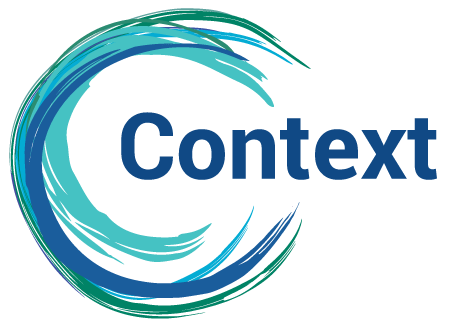Growing Bigger Minds: Action Inquiry as a Transformational Leadership Practice
An interview with Mary Stacey from the April 2013 issue of the Authentic Leadership in Action (ALIA) Institute Fieldnotes
An influential 2011 white paper on “Future Trends in Leadership Development” concluded that status quo approaches to leadership development are inadequate; they don’t prepare leaders for the complexity of today’s real-world situations. The classic focus on horizontal development—on adding more competencies—isn’t enough. To function effectively in complex environments, leaders also need vertical development—the process of growing “bigger minds.” Moreover, leaders themselves need to take responsibility for this growth:
 People develop fastest when they feel responsible for their own progress. The current model encourages people to believe that someone else is responsible for their development—human resources, their manager, or trainers. We will need to help people out of the passenger seat and into the driver’s seat of their own development.
People develop fastest when they feel responsible for their own progress. The current model encourages people to believe that someone else is responsible for their development—human resources, their manager, or trainers. We will need to help people out of the passenger seat and into the driver’s seat of their own development.
The white paper also concluded that the way we understand leadership altogether needs to change—from being equated with individuals in positions of authority to a capacity that is spread across a system. “The question will change from, ‘Who are the leaders?’ to ‘What conditions do we need for leadership to flourish in the network?’”
These findings provided a backdrop for a recent conversation with Mary Stacey, whose consulting work with Bill Torbert and others uses Action Inquiry to develop leadership cultures that have the capacity and flexibility to thrive in today’s complex environments. Although I’d read Action Inquiry, which has become a classic in the field and a standard textbook in many graduate-level organizational development programs, I still had difficulty grasping the essence of Action Inquiry and how it fit within the spectrum of leadership practices that show up at ALIA.
Susan Szpakowski for Fieldnotes: What is Action Inquiry and why does it matter?
 Mary Stacey: In my experience Action Inquiry helps us become more authentic while developing our leadership in real time—in the midst of our day-to-day experiences and dilemmas. It’s a disciplined practice that encourages us to work more vulnerably with feedback and to use power in ways that support our own and others’ development. With practice we become better able to simultaneously inquire and act in response to what is unfolding at the individual, relational, and systems levels. We call this first, second, and third person inquiry.
Mary Stacey: In my experience Action Inquiry helps us become more authentic while developing our leadership in real time—in the midst of our day-to-day experiences and dilemmas. It’s a disciplined practice that encourages us to work more vulnerably with feedback and to use power in ways that support our own and others’ development. With practice we become better able to simultaneously inquire and act in response to what is unfolding at the individual, relational, and systems levels. We call this first, second, and third person inquiry.
Action Inquiry is one part of a comprehensive system that includes a well-researched framework of developmental stages or “action-logics,” an assessment tool that helps leaders explore how they’re doing on the journey, and the practice of Action Inquiry, which supports vertical development, or capacity-building.
FN: When you say developmental stages, I have an image of a ladder we are expected to climb, and which makes one person higher or lower, better or lesser, than another. Doesn’t this approach tend to pigeonhole people and reinforce the tendency to judge oneself and others? From a mindfulness point of view, isn’t it simpler than that? Aren’t we either aware and awake or not?
 MS: I agree that there is this potential risk or misuse. Rather than a ladder, I prefer the metaphor of nesting dolls. As we grow, we expand our capacity, while bringing along the capacities we have acquired at earlier stages. We can selectively draw on them as we need them—such as our ability to offer our unique expertise, create results, build collaboration, act systemically with precision, maybe even create a little bit of magic. Another metaphor that illustrates this is a drinking Transforming Leadership through Action Inquiry 2012 All Rights Reserved Context Management Consulting Inc. glass. Horizontal leadership development fills our glass with more things, like models and competencies, while vertical development involves reaching for a bigger glass. Then we can hold more and we have more to draw on.
MS: I agree that there is this potential risk or misuse. Rather than a ladder, I prefer the metaphor of nesting dolls. As we grow, we expand our capacity, while bringing along the capacities we have acquired at earlier stages. We can selectively draw on them as we need them—such as our ability to offer our unique expertise, create results, build collaboration, act systemically with precision, maybe even create a little bit of magic. Another metaphor that illustrates this is a drinking Transforming Leadership through Action Inquiry 2012 All Rights Reserved Context Management Consulting Inc. glass. Horizontal leadership development fills our glass with more things, like models and competencies, while vertical development involves reaching for a bigger glass. Then we can hold more and we have more to draw on.
For example, I’d say today’s leadership context is one of ambiguity—there is often little clarity about what events mean and what effect they may have. There are often no easy or linear solutions. Sometimes we don’t even know the right question, let alone the answer. This creates discomfort; the situation feels risky and uncertain.
A beginning level response—acting from the smallest glass or nesting doll—is to alleviate that discomfort as quickly as possible. We try to find safety or someone who will give us the answers. We limit our scope to what we can handle and shut out the rest. A more expansive and flexible way of being allows us to step into ambiguity, embrace it and work with it. We grow tolerance for being in that space of complexity and not-knowing, and we value the learning that will come from it. Another, even more expanded approach is to intentionally create the conditions for ambiguity when that is what is needed to support transformation.
Working with this framework allows us to see more clearly where we are on our leadership journey, and understand what we need to support our practice. We can more intentionally cultivate the inner capacity to embrace the outer complexity that defines today’s leadership environment. We can then draw on the action logics that will serve the current moment.
FN: It seems the stages you refer to aren’t necessarily fixed. I could see myself moving back and forth between them, depending on what kind of day it is, how stressed I am, or how well supported I feel.
MS: Yes, definitely. We talked earlier about the value of being able to call upon the capacities we have mastered in earlier stages, depending on the situation. We also begin to see that under stress we fall back, we regress, and get caught up in the limiting aspects of stages that no longer serve us. We may try to create more certainty, or “go along to get along,” all the while wondering why we don’t approach the situation in the way we sense we’re capable of.
With regard to your earlier question about mindfulness, I find that Action Inquiry is also a practice of self-compassion. We can be awake in one moment and then needing to remind ourselves to wake up in the next. Even with practice we still fall back, but we develop the ability to catch ourselves sooner and reclaim higher ground.
This reminds me of Wendy Palmer’s work, which makes our reaction to stress more conscious on a body level. So then we viscerally feel the contraction and the body reminds us to release our default defense mechanisms and expand awareness, open up again.
MS: Yes, exactly. Action Inquiry is also an embodied practice. We make meaning through the intricate connection between our mind, body, and emotions. Action Inquiry can help us tune in to ourselves at a more subtle level.
FN: It sounds a lot like mindfulness—suspending, letting go, shifting from a fixed and ego-centered position to a more expansive awareness, moment to moment. Is Action Inquiry really mindfulness by a different name?
MS: I would say yes…AND it takes mindfulness into a leadership context and offers a framework that is based on 40 years of organizational research. But essentially yes, it is about cultivating shifts in awareness, attention and consciousness, as a way of creating the conditions for transforming action.
It’s also a practice that can take us beyond ourselves and our organizations. One of the most powerful things about Action Inquiry is its scalability—it is effective as a practice for cultivating personal integrity, for generating interpersonal mutuality, for developing more collaborative leadership cultures in organizations, and even for transforming complex global systems. Action Inquiry, like ALIA, can assimilate multiple tools, practices, and scales.
FN: In your experience as an Action Inquiry practitioner and consultant, what results have you seen from applying this approach?
MS: I have found my personal practice, which blends Eastern and Western wisdom traditions, has a lot in common with my leadership work with Action Inquiry. We often initiate Action Inquiry peer coaching groups to support large-scale culture transformations. The testimonials from participants mention greater self-awareness, creative resilience, ability to collaborate, and compassion towards others’ perspectives. These are some of the capacities that are needed for leadership in complex systems.
FN: Could you say something about what people can expect if they sign up for your track at the Summer Institute in June? Is this just a taster or will they make actual progress?
MS: First of all, it will be very experiential. In each of the five sessions we’ll be working at three levels of inquiry, exploring personal practices and inquiry methods.
Those who are drawn to our track are typically interested in developing their leadership in a very intentional way, and acquiring new practices that can generate transformation more broadly. They are looking for the practices and the underpinning frameworks that can help them develop personally, relationally, and in their leadership of the systems they want to transform. In past years, we’ve found that everyone goes through a substantial journey through the week, with take-aways at all these levels. Everyone also has the option to complete the Global Leadership Profile before they come, if they want an objective view of the centre of gravity from where they take action, and some guidance from a coach about where they might focus their development.
FN: Thank you, Mary. We look forward to seeing you and Bill in Halifax in June.
*** Mary Stacey and Bill Torbert will lead the track on “Action Inquiry: Transforming Leadership in the Midst of Action” at the 2013 Summer Institute.
Mary Stacey is the founding director of Context Consulting. Based in Canada, she consults globally with leaders who are transforming organizations and systems. She teaches business leaders Action Inquiry in the Strategic Leadership program, University of Toronto. Bill Torbert is Leadership Professor Emeritus at Boston College and the author of Action Inquiry: The Secret of Timely and Transforming Leadership (Berrett-Koehler, 2004). His Harvard Business Review article “The Seven Transformations of Leadership” was recently named by that publication as one of their top ten leadership articles of all time. Mary and Bill recently co-founded Action Inquiry Associates with colleagues in North America and Europe.

